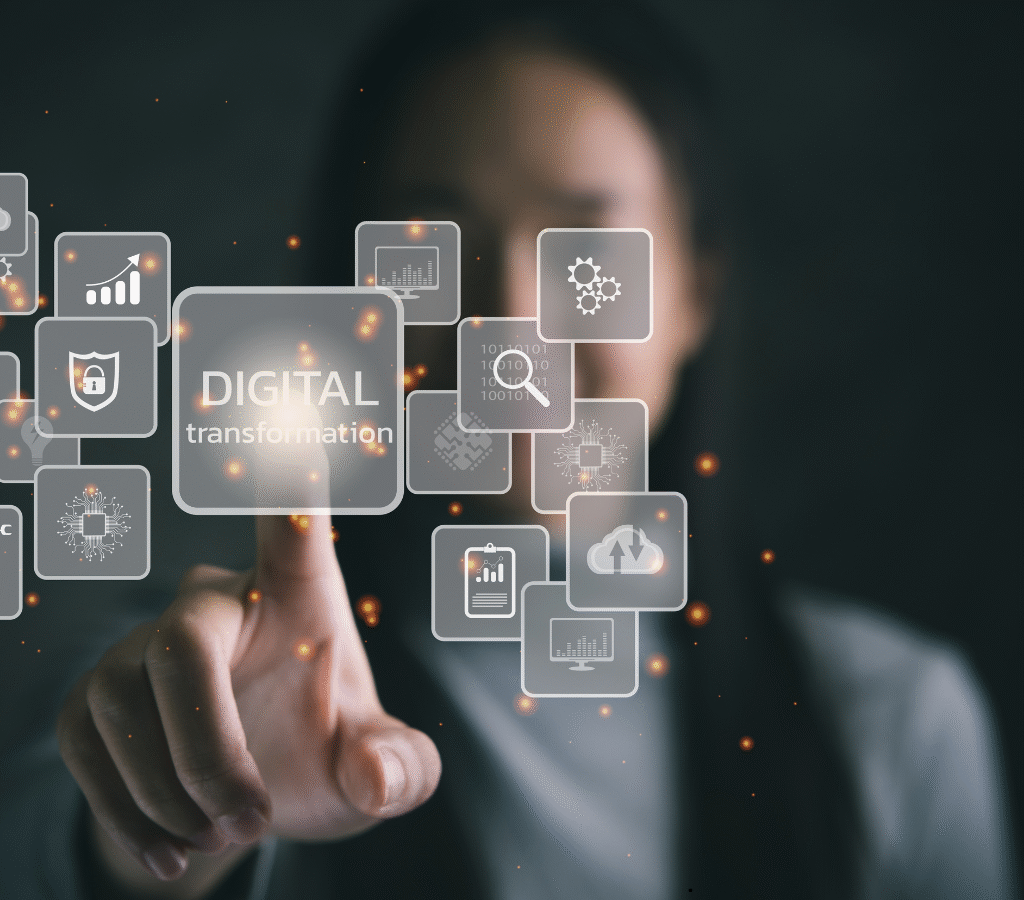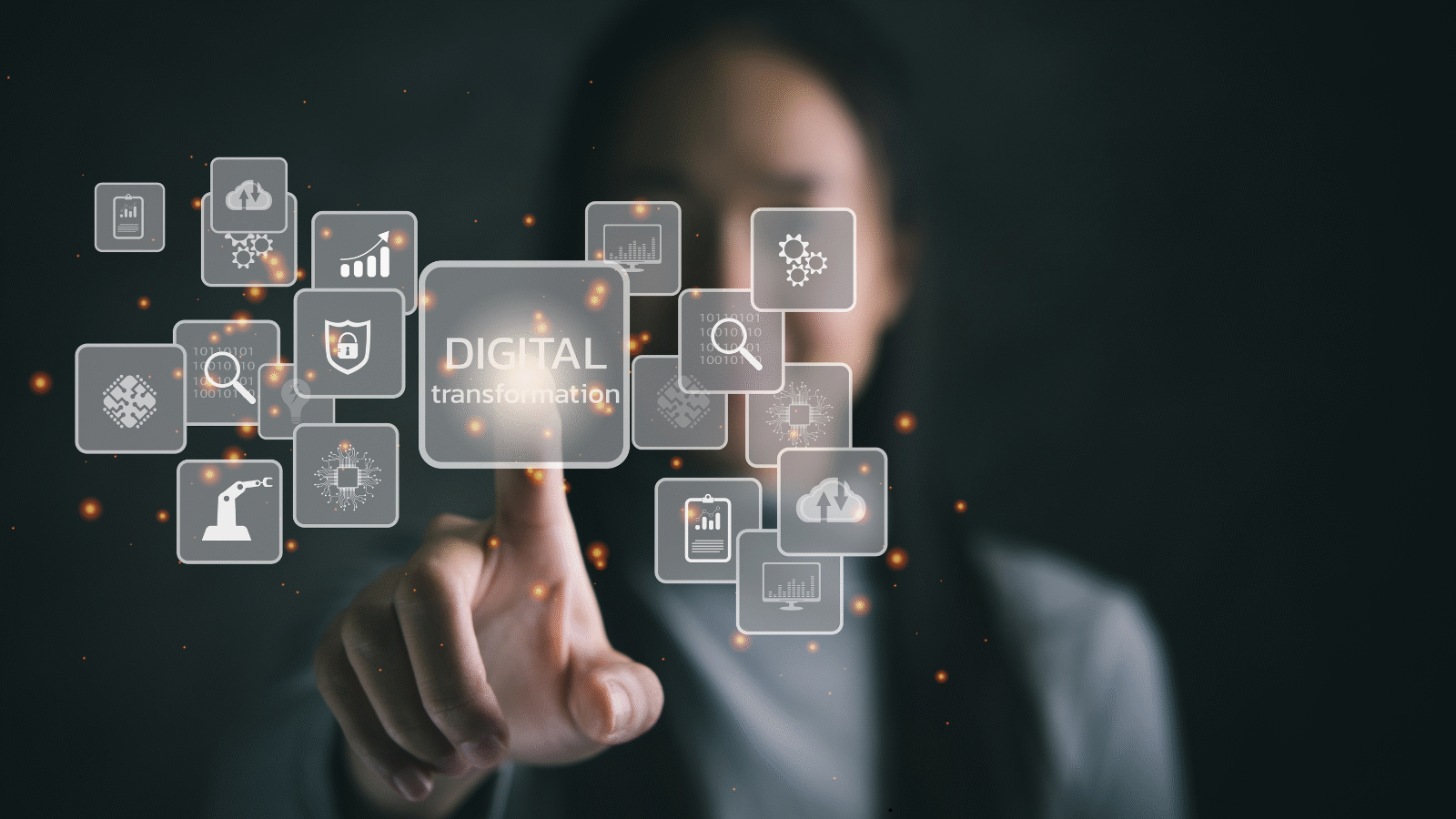In the ever-evolving world of digital marketing, Artificial Intelligence (AI) has emerged as a transformative force. No longer confined to science fiction or back-end automation, AI is now front and center, reshaping how brands connect with audiences, optimize strategies, and measure success. As we move deeper into 2025, AI isn’t just an option for marketers—it’s becoming a necessity.
Let’s explore how AI is revolutionizing digital marketing and what the future holds.

1. Hyper-Personalization at Scale
AI enables marketers to personalize content at an unprecedented level. Gone are the days of generic email blasts and one-size-fits-all ads. Today, AI analyzes vast amounts of customer data to understand preferences, behaviors, and purchase history. This leads to:
- Dynamic website content tailored to each visitor
- Product recommendations based on real-time behavior
- Personalized email marketing campaigns
- Individualized social media ads
According to recent studies, AI-driven personalization can boost conversion rates by over 30%.
2. Smarter Chatbots and Conversational Marketing
AI-powered chatbots have advanced far beyond basic scripted responses. In 2025, these bots can understand context, tone, and intent. They are capable of:
- Offering 24/7 customer support
- Answering complex queries
- Guiding users through the sales funnel
- Collecting user data for future marketing
Brands like Sephora and H&M have successfully used AI chatbots to enhance user experience and drive sales.
3. Predictive Analytics for Strategy Forecasting
Predictive analytics uses historical data, machine learning, and AI algorithms to forecast future outcomes. In digital marketing, this means:
- Predicting customer churn
- Anticipating purchase behavior
- Timing campaigns for maximum impact
- Budget allocation based on projected ROI
With predictive tools, marketers can make data-driven decisions that reduce risk and improve performance.
4. Content Creation and Optimization
AI tools like ChatGPT, Jasper, and Copy.ai are changing how marketers create content. These tools can:
- Write blog posts, ad copy, and social media captions
- Suggest SEO-optimized keywords
- Generate engaging headlines and CTAs
- Repurpose content across platforms
While human creativity is still irreplaceable, AI can handle repetitive tasks and provide a starting point, significantly speeding up the content process.
5. Voice Search and Smart Assistants
As more consumers use voice-activated devices like Alexa, Siri, and Google Assistant, AI is shaping SEO and content strategies. Marketers must now optimize for:
- Conversational keywords
- Long-tail, natural-sounding phrases
- Localized queries (e.g., “best pizza near me”)
Voice search optimization is becoming crucial for maintaining visibility in an AI-powered world.
6. AI-Driven Advertising and Media Buying
Programmatic advertising uses AI to automate ad buying and placement. This means:
- Real-time bidding on ad space
- Targeting users based on behavior and intent
- Optimizing ad spend dynamically
Platforms like Google Ads and Meta Ads already use AI to suggest ad copy, budget adjustments, and targeting options. This not only saves time but also improves ad performance.
7. Visual Recognition and AI in Design
AI is also revolutionizing graphic design and visual marketing:
- Tools like Canva and Adobe Sensei suggest layouts, fonts, and imagery
- Image recognition tech personalizes content based on visual cues
- AI can generate custom visuals and even videos
Brands can now produce high-quality visuals faster, maintaining brand aesthetics while scaling their content.
8. Enhanced Customer Journey Mapping
AI tools track and analyze user journeys across channels. Marketers gain insights into:
- Where users drop off
- What content drives engagement
- How long it takes to convert a lead
This data helps in refining funnels, reducing friction, and improving user experience.
9. Sentiment Analysis and Brand Monitoring
AI can scan millions of online conversations to detect sentiment. This helps brands:
- Monitor reputation in real time
- Identify potential PR issues early
- Understand how users feel about products or campaigns
Sentiment analysis tools like Brand24 and Sprout Social give companies a pulse on public opinion, allowing them to respond proactively.
10. Ethical Considerations and Data Privacy
With great power comes great responsibility. As AI collects and uses massive data sets, concerns around privacy, bias, and transparency are growing.
Marketers must:
- Ensure GDPR and data protection compliance
- Use AI ethically and avoid manipulative tactics
- Be transparent about data usage
Building trust is essential in an AI-powered ecosystem.

Future Outlook: What’s Next for AI in Marketing?
As AI continues to evolve, expect these developments:
- Emotion AI: Detecting emotions through facial recognition and voice
- Augmented Reality + AI: Personalized shopping experiences
- AI Influencers: Virtual personalities representing brands
- Deeper Integration with CRM: AI fully managing lead nurturing
The key is not to fear AI but to embrace it as a collaborative tool. Marketers who learn to use AI smartly will stay ahead of the curve.
Final Thoughts
AI is no longer a futuristic concept—it’s a present-day powerhouse that is reshaping digital marketing from the ground up. Whether it’s through personalization, automation, or predictive insights, AI empowers brands to be more strategic, responsive, and effective.
To succeed in 2025 and beyond, businesses must not only adopt AI tools but also adapt their mindset. The fusion of human creativity and machine intelligence is the formula for next-gen marketing success.
At Chasegeek Digital we help businesses leverage AI-driven strategies to grow smarter and faster. Ready to future-proof your marketing? Let’s connect.
FAQs
Q1. Is AI replacing digital marketers?
A: No. AI is a tool to enhance marketing efforts, not replace human creativity or strategic thinking.
Q2. What are the best AI tools for marketers in 2025?
A: Some top tools include ChatGPT, Jasper, Copy.ai, HubSpot, Canva AI, and Google Ads AI features.
Q3. How can small businesses use AI affordably?
A: Many AI tools offer free or budget-friendly plans. Start with content generation, chatbots, or analytics.
Q4. Is AI suitable for all industries?
A: Yes, AI can be tailored to suit any industry, from e-commerce to healthcare to real estate.
Q5. How do I start integrating AI into my marketing strategy?
A: Begin by identifying your biggest bottlenecks (e.g., content creation, customer support) and test AI tools in those areas first.


Leave a Comment